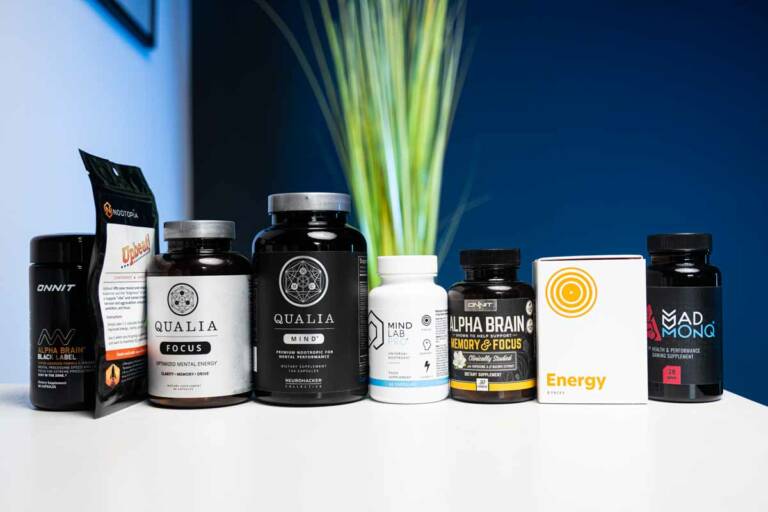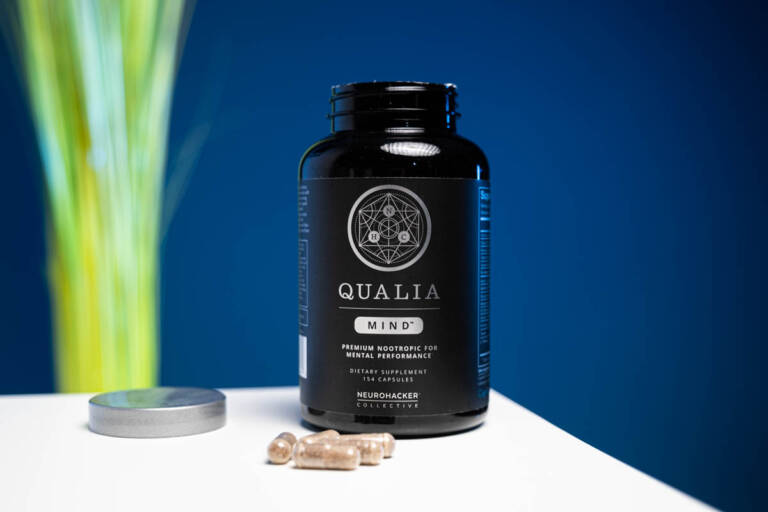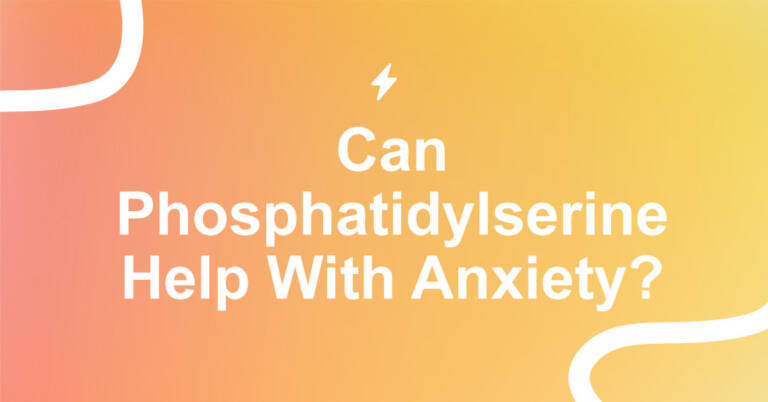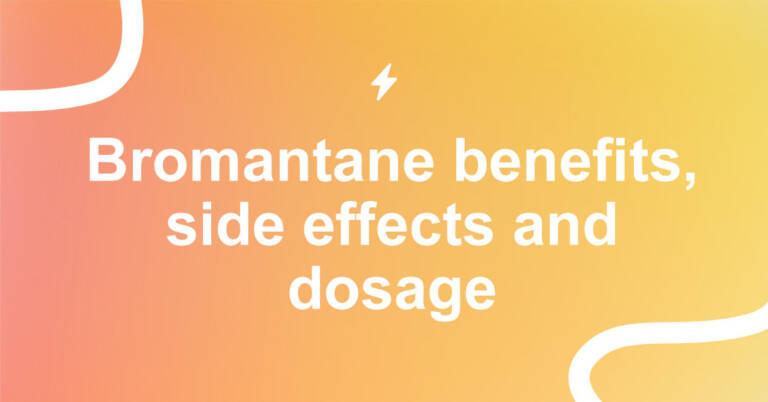Adderall is a name that has quickly become associated with sensations like enhanced alertness and increased productivity but not necessarily in a good way. If anything, this is a medication with serious consequences when used without medical supervision or for prolonged periods.
What Is It?
Adderall is a prescription stimulant that contains a combination of dextroamphetamine and amphetamine. It is a medicine used to treat people with certain health conditions like ADHD (attention deficit hyperactivity disorder) and narcolepsy conditions.
The most common users of this prescription drug are young students and professionals who don’t really look like the stereotypical drug user. Other demographics that have been known to use Adderall include athletes and Wall Street executives.
They use it as a stimulant to foster their motivation, where its effects can help them to have mental clarity and focus better. Young individuals who are driven to perform better while multitasking, achieve more and increase productivity find Adderall fulfilling their requirements and yielding the results they desire.
But these results often come at a high cost. The biggest misconception among these groups is to assume that Adderall is safe to consume as it comes from a doctor.
Medical professionals prescribe it to people, including children, who suffer from ADHD. In these cases, the drug increases the supply of certain chemicals in the brain which makes brain pathways work more effectively. Medications like Adderall lessen ADHD symptoms in the majority of people who take them. But just because it’s given to children under medical supervision does not make it safe to consume for people looking to improve focus and performance.
Outside this medical condition, Adderall can act as a strong stimulant and this is where most of its dangers come from. The active components are psychostimulant amphetamines that increase dopamine and norepinephrine production to unusually high levels in the brain.
Norepinephrine impacts how the human brain responds to events such as attention and reaction time while dopamine creates a rewarding effect. [*]
People who become dependent on Adderall use feel tired and mentally foggy without it. Adderall is also a Schedule II drug with a high risk of addiction and dependence.

How Does It Works?
Adderall can increase synaptic levels of neurotransmitters for very complex mechanisms. [*]
By supplementing Adderall, the levels of dopamine increase in your body since Adderall blocks the dopamine transporter. This is what brings a stimulating and euphoric state of mind.
Because of that, many individuals abuse this drug, which can leave severe side effects.
What Does It Do To The Brain?
Adderall helps stimulate and increase the release of specific neurotransmitters, most notably dopamine, epinephrine, serotonin, and norepinephrine. These play an active part in the brain for regulating attention and executive function along with creating an instant rush of “feel good” chemicals.
As these neurotransmitters become more available, they have the effect of improving communication and activity in parts of the brain that operate on dopamine and norepinephrine. Users experience improved alertness, enhanced energy, and higher motivation.
But alongside the heightening of certain neurotransmitters, Adderall can also bring about physical changes in the brain’s neurocircuitry. This can cause altered behaviors and the development of mental disorders such as depression. Excessive consumption of Adderall can depreciate the central nervous system and cause irreparable damage.

Can Using It Become Addictive?
Simply put, yes it can. Because it is a potent stimulant, it can be hard to recognize when someone abuses the drug. Once again, those who abuse it do so under the assumption that it’s safe to use.
The constant flow of reward signals can leave users wanting more. As a result, tolerance develops and users feel they need more of the drug to get the same effect. This can lead to dependency and addiction.
Another group that abuses the drug is people with eating disorders. This group most likely does so because Adderall suppresses appetite. In cases where people have become addicted (whether knowingly or unknowingly), they have tried injecting the drug in an attempt to receive a better “high”. Injection aims to deliver the drug directly into the bloodstream, yet at the same time, it also presents the threat of a fatal overdose.
Another way to use Adderall is by snorting so it can deliver immediate effects. This is done by crushing the pills into a fine powder and sniffing into the sinus cavity. While this will deliver the desired “high”, snorting can easily damage the nasal and sinus cavities. And the longer someone uses Adderall this way, the more damaged their system becomes. Snorting also increases the possibility of side effects such as irregular heartbeat and presents a heightened risk of overdose.
Trying to quit cold turkey can present a host of withdrawal symptoms making quitting even more challenging. People addicted to Adderall use will find themselves facing effects that are essentially the opposite of what the drug promises to do. This includes feeling highly fatigued, losing concentration, and even an unusually slow heartbeat. In the most severe cases, people may need to enroll in inpatient rehab to get out of their addiction.
Can It Help People With ADHD?
ADHD is a challenging condition to manage. Those diagnosed with the condition experience inattentiveness, impulsiveness, learning difficulties, and socializing. All these factors can bring about creativity and productivity issues that foster an overall sense of inefficiency.
That said, there are different natural alternatives to Adderall which can help regulate symptoms. Many fall under the category of nootropics for enhancing brain performance in different areas while others can help manage other ADHD symptoms.
Even those who are simply looking for a way to boost focus and concentration can benefit from these natural alternatives safely rather than rely on a stimulant like Adderall. And best of all, these are legal to purchase whereas Adderall can only be given legally as a prescription medication.
Now let’s check the best alternatives to Adderall. What Does It Do To The Brain?
Natural Substitutes
Safer alternatives to Adderall include a list of natural brain supplements that can all help improve concentration, focus, mental energy, memory recall and cognitive function.
Alpha-GPC
Alpha GPC is a choline compound (similar to CDP Choline) that has been researched to help with mental performance in different capacities. Choline is a precursor to the neurotransmitter acetylcholine which is responsible for several chemical messages sent within the brain. Alpha GPC assists in delivering choline to the brain along with increasing acetylcholine production. [*]
Acetylcholine then supports many aspects of working memory including enhancing memory, concentration, information processing, and reaction speed. One of the biggest perks of using this choline form is its bioavailability. It easily crosses the blood-brain barrier allowing it to get right to work in the brain and become readily absorbed into the bloodstream.
When compared to other forms of choline, Alpha GPC contains more choline by weight as well.
Bacopa Monnieri
Bacopa monnieri is a medicinal herb with a long history of enhancing memory performance, reducing anxiety, and treatment for epilepsy. Recent research into the herb also shows that it may boost brain function and alleviate stress and anxiety among other benefits.
The herb’s potency is believed to come from a class of powerful compounds known as bacosides. [*] Bacopa monnieri offers neuroprotection by bolstering levels of certain neurotransmitters in the brain. For instance, Bacopa seems to increase brain synthesis of serotonin, which among other things, is vital for mood regulation. It also seems to increase the effects of dopamine which can help achieve a sense of calm and maintain mood equilibrium of a person.
Animal models show that it also activates choline acetylcholinesterase which is an enzyme involved in acetylcholine synthesis. At the same time, it inhibits acetylcholinesterase, an enzyme that breaks down acetylcholine. [*]
Both these actions raise levels of acetylcholine in the brain which is a chemical that plays an important part in actions like memory and attention. In addition, bacopa is also considered an adaptogenic herb suggesting that it increases the body’s resistance to stress. Some research indicates that bacopa reduces stress and anxiety by elevating mood and reducing levels of cortisol, a hormone associated with stress levels. [*]
Caffeine
Caffeine is no stranger to any list of stimulants, but does it size up to Adderall as a learning aid? While the use of Adderall seems to be growing by the semester, caffeine still remains the most commonly used psychoactive drug.
Caffeine stimulates the metabolic and central nervous systems which cause wakefulness, alertness, and focus. This happens because coffee gets absorbed quickly and has an almost immediate stimulatory effect on neurotransmitters in the brain which results in boosting vigilance, energy, and concentration. It also blocks adenosine receptors in the brain which reduces fatigue. Plus, not only does caffeine improve energy levels and reduce fatigue, its stimulatory effects make it suitable for curing brain fog as well. [*]
Of course, it comes with its downside of triggering irritability, restlessness, insomnia, and headaches, but these are still considered safer than side effects associated with Adderall use.
When compared, caffeine comes out as the safer, legal and more easily available alternative which can help people learn and study in a beneficial, yet less physically stressful manner.
Citicoline
Another cholinergic, citicoline also increases choline levels in the brain. The use of this nootropic has shown benefits in memory enhancement and cerebral circulation. There have also been neuroprotective benefits as citicoline performs a regulatory function in the brain. [*]
What this refers to is that citicoline regulates and restricts the movement of substances across cell membranes. While it allows in water, oxygen, and nutrients required for survival to pass through the cell membrane, it prevents harmful substances from doing the same.
With optimal protection in this way, brain cells can function all the better and lead to brain-boosting benefits. Typical results after using citicoline supplementation include increased focus, enhanced learning, improved working memory, and superior brain cell formation. All these are benefits that users hope to get from Adderall.
Ginkgo biloba
A well- known herb for brain health, Ginkgo Biloba helps preserve the vital balance of neurotransmitters in the brain. Most notably, it is known to maintain acetylcholine, norepinephrine, serotonin, and dopamine. Together, this helps improve attention span and reduce impulsivity. [*]
The plant has high levels of flavonoids and terpenoids which are antioxidants providing protection against oxidative cell damage. Then there are the other health benefits of boosting memory retention, slowing age-related cognitive decline and enhancing cerebral flow.
Gingko Biloba is both legal and easily obtainable over the counter. Plus, it delivers the results without presenting any of the same health and safety risks associated with Adderall.
L-Theanine
Sourced from the green tea leaves of the Camellia sinensis plant, L-theanine is an amino acid that helps reduce anxiety and stress by improving glycine and GABA levels in the brain. Both these inhibitory neurotransmitters counterbalance other overactive excitatory neurotransmitters which establish a state of calmness and relaxation for the user. [*]
The potency of L-theanine multiplies when taken with caffeine. As such, the two are often used together in performance-enhancing energy supplements. While caffeine stimulates higher focus, concentration, and motivation, L-theanine neutralizes the drawbacks of increased heart rate and blood pressure. It also removes the jitters and anxiety that come with caffeine use alone. [*]
This popular combination creates one of the most synergistic effects when considering natural Adderall alternatives.
Lion’s Mane Mushroom
Lion’s mane mushroom has established health benefits in the medicinal and culinary fields. While many of the other Adderall alternatives mentioned here work on stimulating specific neurotransmitters in the brain, Lion’s mane mushroom derives its potency by increasing the amount of a specific protein required for neurogenesis.
Lion’s mane mushroom has certain active compounds that can cross the blood-brain barrier and become more readily available in the brain. Here they stimulate NGF levels which ensures the health and survival of neurons. NGF is vital to improving cognition and prevents neural degeneration.
This mushroom variety also shows the potential to reduce anxiety and depression. [*]
Maritime Pine Bark
Another natural alternative adept at mimicking the effects of Adderall, maritime pine bark is known well for improving cognitive functioning. The extract from this tree bark contains antioxidants classified as oligomeric proanthocyanidin compounds or OPCs with the ability to counterbalance free radicals in the body. Also, OPCs enhance the production of nitrous oxide which helps dilate blood vessels to retain healthy levels of blood pressure. [*]
These actions, when translated into nootropic activity, improve cerebral blood flow and help enhance cognition. OPCs are also capable of crossing the blood-brain barrier which allows them to minimize oxidative damage while promoting mental health and performance.
Cumulative benefits include a positive effect on memory, focus, decision making, and mood.
Rhodiola Rosea
Rhodiola Rosea is a Scandinavian herb that presents stimulatory properties similar to Adderall but without any of the adverse effects. It works as an anxiolytic with a long history of use as an anti-anxiety supplement. It’s also known as an adaptogen as it reduces fatigue and exhaustion in prolonged stressful situations. [*]
Studies have shown Rhodiola to be an effective alternative for Adderall as it meets the various parameters of reducing stress, combating fatigue, increasing mental performance along with improving physical and mental fitness and resilience. There are also claims of neuroprotection, cognitive enhancement, and improving memory. [*] [*]
Much of this activity is due to Rhodiola’s ability through serotonin and dopamine regulation. Even though scientific research is limited regarding Rhodiola’s brain-boosting benefits, its long history of use shows it to be a safe and natural Adderall alternative.
As you can see, there are many options available.
The 9 best replacements are:
- Alpha-GPC
- Bacopa Monnieri
- Caffeine
- Citicoline
- Ginkgo Biloba
- L-Theanine
- Lion’s Mane Mushroom
- Maritime Pine Bark
- Rhodiola Rosea
Over The Counter
When looking for over-the-counter Adderall options, the products mentioned above all qualify reasonably well. You can find them in many of today’s nootropic and dietary supplements that are purchasable without any prescription and are perfectly legal to use as well.
The only limitation is that none of these natural substances can completely replicate the effects of pharmaceutically manufactured amphetamine salts.
That’s why we recommend combining them up to get multiple benefits at the same time. Some people prefer buying individual compounds and stacking them at home, but we suggest going for a quality nootropic supplement that contains most of the mentioned compounds at effective dosages (and many other vital natural nootropics) that can help you achieve ultimate cognitive performance.
Are there energy pills that work same like this?
Yes, there are a few energy pills that can boost your energy and brainpower, similar to the effects of using Adderall. However, most such pills are much healthier and come without adverse side-effects. Also, you don’t need a prescription for them.
However, usually, such pills aren’t as strong as Adderall. But of course, there are a few exceptions…
Over The Counter Stimulants Similar To It
There are many over the counter Adderall substitutes on the market, but none are as strong as Adderall.
It is important to understand that if there were a similar substance available, it would probably be treated as a drug, so it wouldn’t be freely available for sales.
But there are many Adderall substitutes that work differently yet provide many positive effects such as:
- Improved focus & attention
- More physical and brain energy
- Better motivation
- Better mood and well-being
- Less stress
If that’s what you are searching for, then check our favorite substitutes!
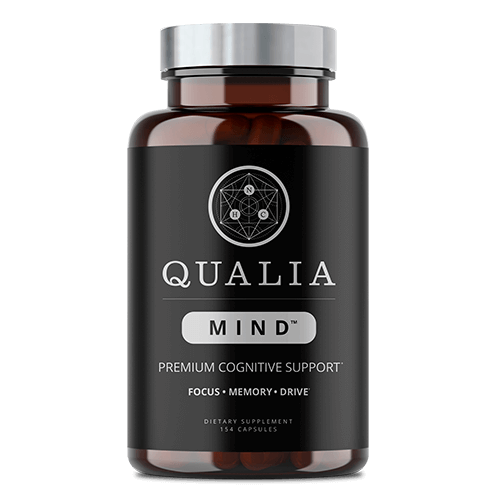
#1 Qualia Mind
Qualia Mind is the best Adderall alternative that became very popular among people searching for a strong brain boost.
With 28 compounds, Qualia Mind is a great substitute for Adderall, but a much safer alternative. It can provide a strong short- and long-term focus, energy, and brainpower.
That’s why we recommend supplementing it!
PROS:
- 28 high-quality researched ingredients
- Great long-term effects
- No side-effects
CONS:
- The formula delivers no energy-boost
Use my discount code YOURINCEPTION for a 15% discount!
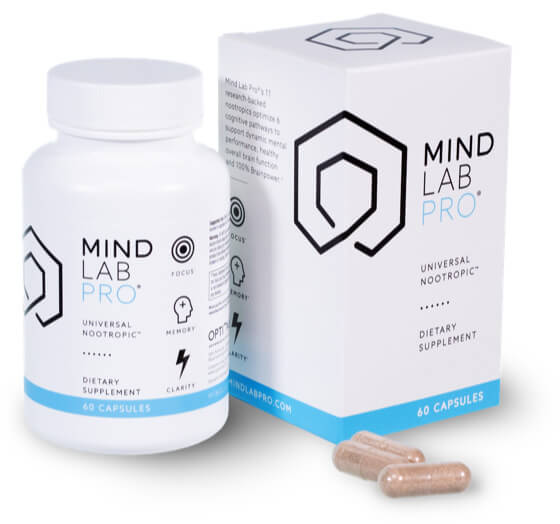
#2 Mind Lab Pro
Mind Lab Pro is one of the most often mentioned otc Adderall alternatives. It is a nootropic supplement that can improve memory, focus, and boost mental performance.
It is a great natural supplement that delivers weaker momentary effects, while many people agree it is one of the best supplements for long-term use.
Taking Adderall provides much stronger effects, but it is also riskier. That’s why we prefer Mind Lab Pro.
PROS:
- One of the best otc Adderall alternatives
- Contains B vitamins, pine bark, and L-tyrosine
- Natural nootropic
CONS:
- Weaker effects
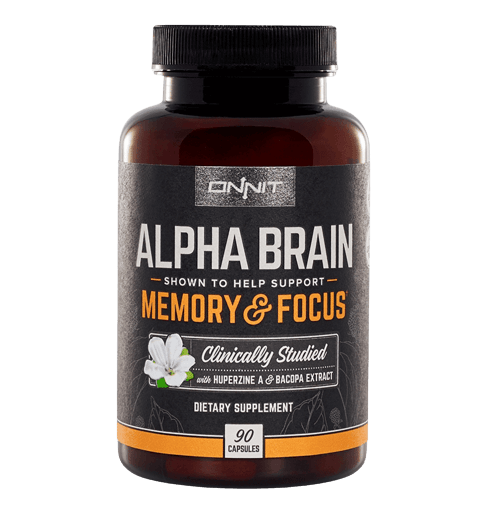
#3 Alpha Brain
If you search for Adderall over the counter, but a safer option, you should check Alpha Brain.
Alpha Brain delivers very strong short-term effects, and it is an all-natural supplement for brain power and cognition.
Hence, it is a great over the counter Adderall replacement.
However, keep in mind that some people feel sick when overdosing on Alpha Brain, so you need to start with lower dosages.
PROS:
- Natural ingredients
- Strong short-term effects
- Very popular
CONS:
- Weaker long-term effects
- Side-effects possible
Use a discount code YOURINCEPTION for 10% off!
Verdict
The above-mentioned alternatives to Adderall are all great options, but in reality, Adderall is an amphetamine and it becomes hard to compete with that. So you may need to stack a few of these together to get the same effect as Adderall (minus the adverse effects).
While some of these options stimulate neurotransmitters, others draw their potency from possessing impressive antioxidant content. Yet some others can cross the blood-brain barrier to show their effects in the brain.
Overall, Adderall causes longer-lasting non-jittery periods of focus, but the dangers and illegality of this drug far outweighs its advantages as a learning aid. Adderall, on its own, doesn’t make anyone smarter but simply lets them sharpen their already existing knowledge.
Therefore, choose the best natural Adderall alternatives in the market. Buy a high-quality nootropic supplement to get the best out of both worlds without any side effects. We suggest Qualia Mind Brand!
